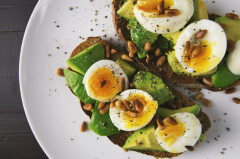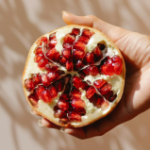Discover holistic strategies for overcoming addiction, including diet, supplements, herbal remedies, and lifestyle changes.
A 45-year-old man came to see me as he felt his life had been getting out of control. He had a long history of various addictions — in his teens and 20s to smoking (which he stopped after great effort), then found he was drinking excess alcohol too frequently, which he was trying to manage. In the last few months, he had started using cocaine and was now craving this drug to a point where he felt it was controlling his life.
Addiction is defined as a chronic illness that affects the brain’s reward, motivation and memory functions, whereby the person craves a substance (or a behavioural habit) so intensely that they will ignore other areas of their life. They experience decreased socialisation, ignoring commitments, relationships and risk factors despite potential consequences. They experience physical effects such as withdrawal symptoms, needing increasing doses for the same effect. General signs are lack of control or the inability to stay away from a substance While a healthy person can usually identify the problem and stop doing it, someone with an addiction loses this insight, and instead fi nds ways to justify and, therefore, continue the behaviour.
This man recognised he had a problem — the first major step – and was desperate to manage it. But was finding this too difficult without help. Recognising the problem indicates that, with time and effort, there is a good chance of overcoming it (research says up to 90 per cent). There are two major areas to consider – the internal recognition of a problem and seeking counselling support for behavioural change.
The dietary recommendations centered around an organic wholefood diet (to reduce further chemical intake), with regular amounts of adequate proteins such as fish, lamb, grass-fed beef, organic chicken and biodynamic eggs. As neurotransmitters are largely made from the amino acids (protein – plus various specific nutrients as cofactors), these are important components of the diet. He wasn’t interested in vegan diets (and he was type O blood), so this wasn’t a problem for him. Along with these foods, focus was on the components that support the specific neurotransmitters involved in addiction (dopamine, glutamine, GABA and serotonin). These are foods containing tyrosine (support dopamine) including bananas, almonds, sunfl ower seeds and soybeans (along with the animal proteins).
Foods rich in L-glutamine (help reduce sugar cravings) such as dark green leafy vegetables — kale, spinach, parsley, red cabbage, brassicas (broccoli, brussels sprouts, cabbage), beets and papaya were recommended in substantial servings (with the proteins), as well as prebiotic foods such as onions, garlic and asparagus to improve gut microbiome balance.
Foods tha





